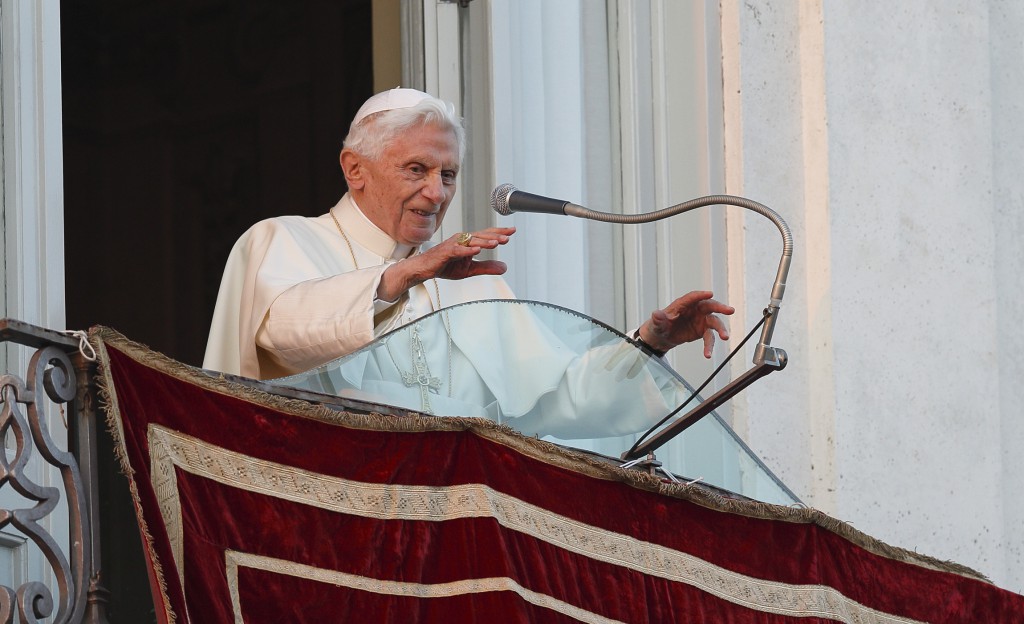
Archbishop Timothy Costelloe SDB has announced six days on which Catholics within the Archdiocese of Perth can obtain a Plenary Indulgence before the Year of Faith concludes on November 24.
Archbishop Costelloe’s announcement followed on from a decree of Pope Benedict XVI issued on September 14 last year which authorised local bishops to designate specific days within their dioceses on which indulgences could be obtained.
Archbishop Costelloe has nominated the following dates for Perth:
– The Feast of St James the Apostle (Thursday, July 25)
– The Solemnity of St Mary of the Cross MacKillop (Thursday, August 8)
– The Feast of the Exaltation of the Holy Cross (Saturday, September 14)
– The Memoria of St Francis of Assisi (Friday, October 4)
– The Solemnity of All Saints (Friday, November 1)
– The Solemnity of Christ the King (Sunday, November 24), also the final day of the Year of Faith.
The decree outlined a total of four ways in which the faithful could obtain the Year of Faith indulgences, indicating, however, that they could only be received by faithful who are “truly penitent, take Sacramental Confession and the Eucharist and pray in accordance with the intentions of the Supreme Pontiff”.
The means offered in Pope Emeritus Benedict’s decree are:
– Each time they attend at least three sermons during the Holy Missions, or at least three lessons on the Acts of the Council or the articles of the Catechism of the Catholic Church, in church or any other suitable location.
– Each time they visit, in the course of a pilgrimage, a papal basilica, a Christian catacomb, a cathedral church or a holy site designated by the local ordinary for the Year of Faith (for example, minor basilicas and shrines dedicated to the Blessed Virgin Mary, the Holy Apostles or patron saints), and there participate in a sacred celebration, or at least remain for acongruous period of time in prayer and pious meditation, concluding with the recitation of the Our Father, the Profession of Faith in any legitimate form, and invocations to the Blessed Virgin Mary and, depending on the circumstances, to the Holy Apostles and patron saints.
(C) Each time that, on the days designated by the local ordinary for the Year of Faith, in any sacred place, they participate in a solemn celebration of the Eucharist or the Liturgy of the Hours, adding thereto the Profession of Faith in any legitimate form.
(D) On any day they chose, during the Year of Faith, if they make a pious visit to the baptistery, or other place in which they received the Sacrament of Baptism, and there renew their baptismal promises in any legitimate form.
The Church’s doctrine regarding Indulgences has long been misunderstood, abused and led to controversy throughout Her history and many Catholics today are unaware of the graces obtained through this doctrine.
To emphasise the importance of Indulgences Pope Benedict, when issuing the decree last year, accompanied it with the words, “Since the primary objective is to develop sanctity of life to the highest degree possible on this earth, and thus to attain the most sublime level of pureness of soul, immense benefit may be derived from the great gift of
Indulgences which, by virtue of the power conferred upon her by Christ, the Church offers to everyone who, following the due norms, undertakes the special prescripts to obtain them”.
The Catholic Church teaches that forgiveness of the eternal guilt of sin, which requires the infinite merits of Christ, is received through the Sacrament of Confession, but it does not necessarily remove all the temporal punishment of sin, since they are somewhat within our power to repair.
Therefore every sin, even venial, must be purified either here on earth, or after death in the state called Purgatory.
Through this purification process one is freed from the temporal punishment of sin and can attain eternal communion with God.
We are able to demonstrate our willingness to seek this deeper relationship by actively participating in this process of purification.
St Paul told those he met to, “Repent and turn to God and perform deeds worthy of their repentance” (Acts 26:20).
As the custodian of the keys of Heaven, by virtue of the power of binding and loosing granted her by Christ Jesus, the Church is able to open the treasury of the merits of Christ and the saints and allow the faithful to obtain indulgences and therefore the remission of their temporal punishments.
An indulgence can be partial or plenary according to whether it removes part or all of the temporal punishment due to sin and may be applied to the living or the dead.